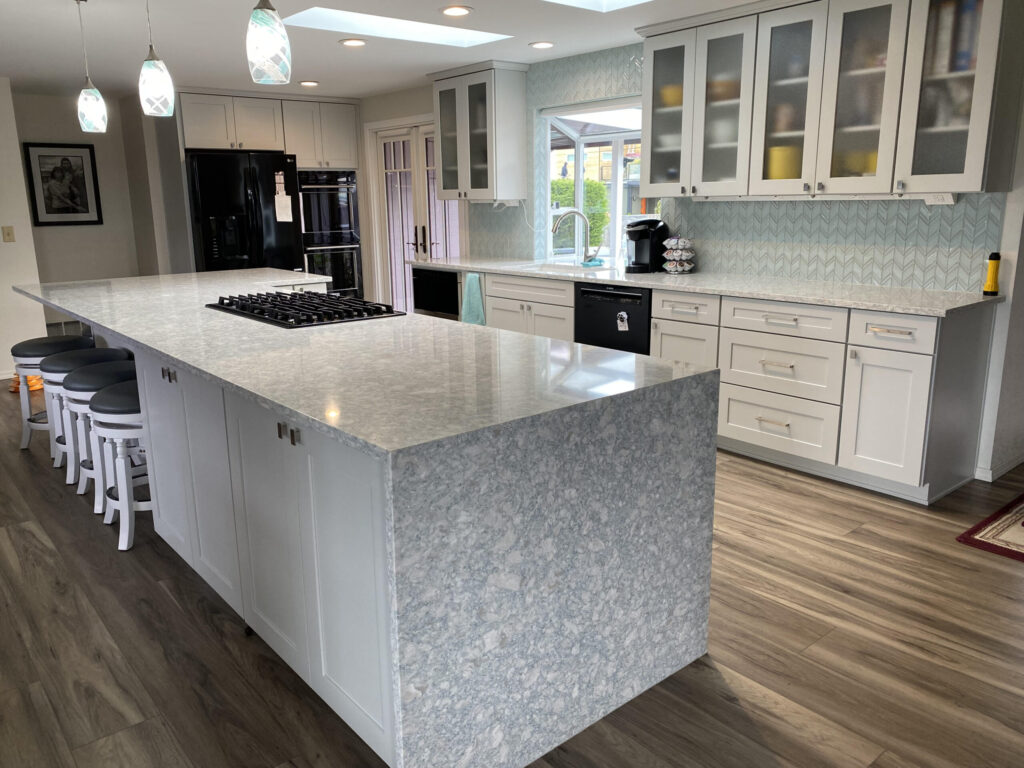Quartz vs. Quartzite: Unveiling the Key Differences for Seattle Residents
Seattle residents looking to upgrade their kitchen or
bathroom countertops often consider both quartz and quartzite as viable
options. While the names may sound similar, these two materials have
significant differences that can impact your choice. In this article, we’ll
uncover the key distinctions between quartz and quartzite to help you make an
informed decision for your Seattle home.
Understanding Quartz
Composition: Quartz countertops are engineered stone
surfaces made up of about 90-95% crushed natural quartz crystals mixed with
resins, polymers, and pigments. The manufacturing process creates a wide range
of colors and patterns.
Durability: Quartz countertops are highly durable and
are resistant to staining, scratching, and chipping. They can withstand daily
wear and tear and are suitable for high-traffic areas, making them an excellent
choice for busy Seattle kitchens.
Maintenance: Quartz countertops are low-maintenance
and do not require sealing. Regular cleaning with mild soap and water is
typically sufficient to keep them looking pristine.
Design Flexibility: Quartz offers a broad spectrum of
colors and patterns, making it easy to find a design that suits your style and
kitchen or bathroom decor. The engineered nature of quartz allows for greater
consistency in color and pattern.
Exploring Quartzite
Composition: Quartzite, on the other hand, is a
natural metamorphic rock formed from sandstone and quartz under heat and
pressure. It contains a high percentage of natural quartz, typically around
90%, with varying amounts of minerals like feldspar and mica.
Durability: Quartzite countertops are exceptionally
durable, with a high resistance to heat and scratching. They are a suitable
choice for Seattle homes where the countertops may come into contact with hot
cookware.
Maintenance: While quartzite is resistant to
staining, it is a porous material and may require sealing to prevent moisture
absorption and staining. Sealing frequency depends on the specific type of
quartzite and usage.
Design Flexibility: Quartzite offers a unique and
natural aesthetic with an appearance similar to marble. Its patterns and colors
are created by natural processes, resulting in a look that’s distinctive and
often resembles marble or other natural stones.
The Key Differences
- Composition:
Quartz is an engineered material, while quartzite is a natural stone.
Quartz is primarily made up of crushed quartz crystals and resins, while
quartzite is formed by nature, resulting in unique patterns and colors.
- Durability:
Both materials are durable, but quartzite is particularly heat-resistant,
making it an excellent choice for kitchens where hot pots and pans are in
use. Quartz countertops are engineered to be highly durable and
scratch-resistant.
- Maintenance:
Quartz is low-maintenance and does not require sealing. Quartzite may
require periodic sealing to maintain its resistance to staining.
- Design
Aesthetic: Quartz countertops offer a wide range of design options,
but they may lack the unique and natural appearance of quartzite, which
often resembles marble or other natural stones.
Making Your Choice
Your choice between quartz and quartzite ultimately depends
on your specific needs and preferences. If you’re looking for a
low-maintenance, versatile, and consistent material with a wide range of design
options, quartz may be the right choice. On the other hand, if you prefer a
unique and natural aesthetic with excellent heat resistance, quartzite is an
attractive option.
Consider your lifestyle, design preferences, and maintenance
requirements when making your decision. Whichever material you choose, both
quartz and quartzite can enhance the beauty and functionality of your Seattle
home’s countertops.


